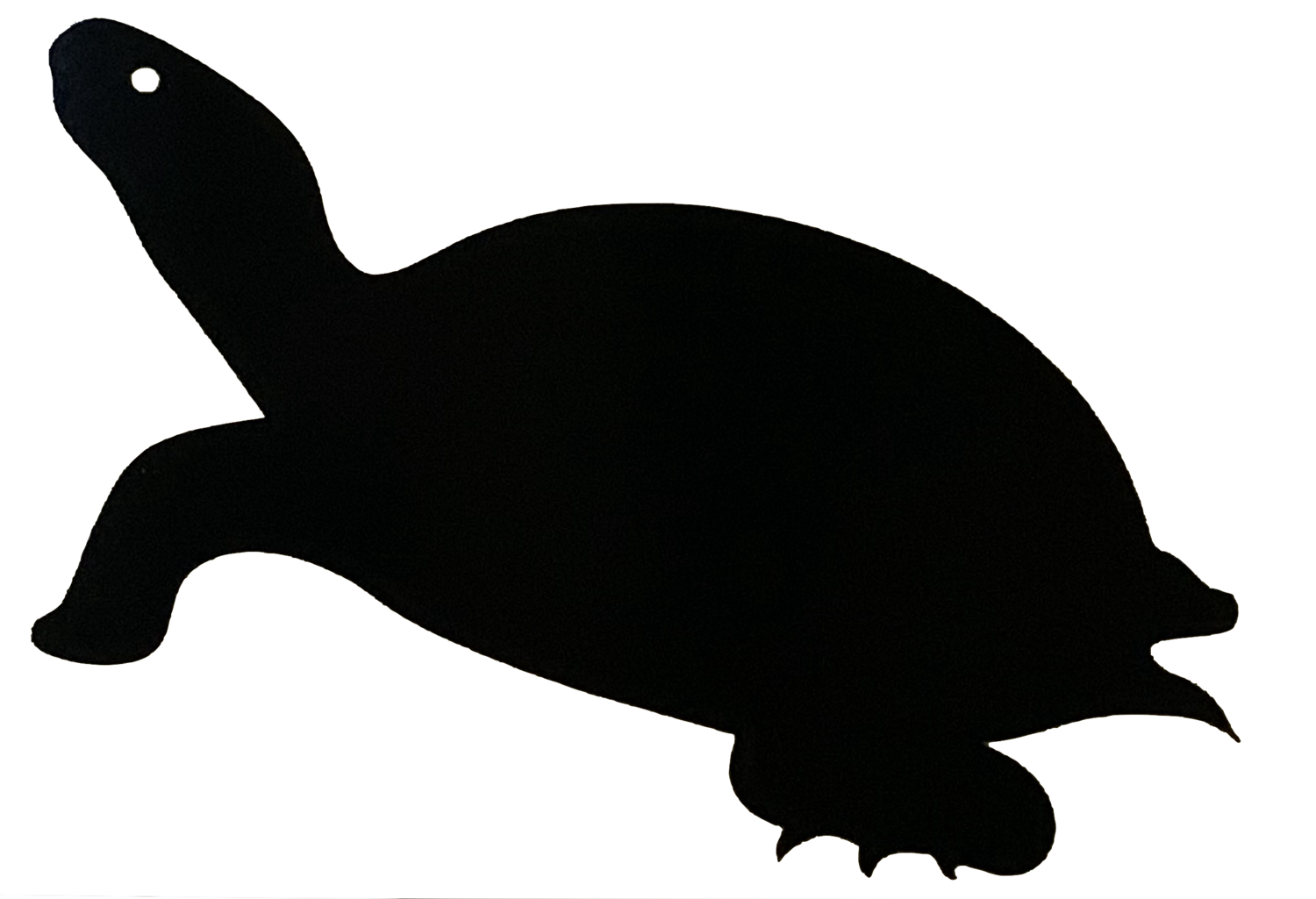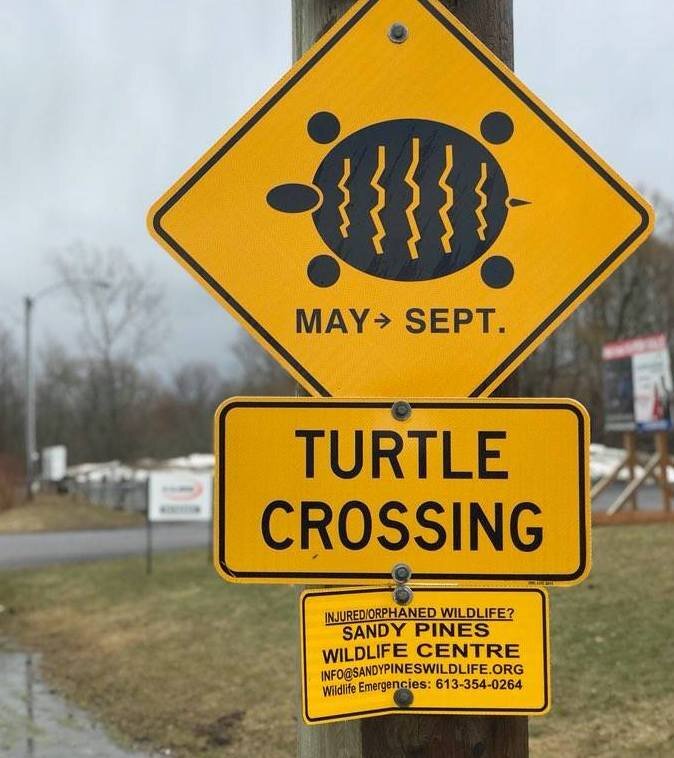About Turtles Kingston

What is Turtles Kingston
Turtles Kingston is an organization that aims to protect turtles within Kingston and the area by supporting and encouraging the community to take action!
The relaunch of Turtles Kingston in 2018 was through the efforts and dedication of one individual determined to make a difference!
If you are interested in becoming a volunteer, learning more, or becoming part of the team please sign up to be a Turtle Kingston member
Mission
Our mission at Turtles Kingston is to protect turtles within Kingston and the surrounding area by effecting change in human and societal activities and behaviours.
Vision
Our vision at Turtles Kingston is to reach a day when all 8 Ontario turtle species are no longer at risk.
Values
Turtles Kingston believes in the protection of turtles through advocacy, education, collaboration, volunteering, and individual efforts.
Through the passion, efforts, and dedication of one person there can be major change!
Turtles Kingston’s History and Successes
2021
The proposal for mitigation measures at the Westbrook Wetland was presented to Kingston City Council in January. It was unanimously supported to be further investigated and was presented again for approval in the City’s 2021 year budget.
Mitigation measures were implemented at the Westbrook Wetland in the spring of 2021. This represents the realization of the main objective for the relaunch of Turtles Kingston!
As a result of the pandemic, Lee Valley Tools had to withdraw from the Turtle Nest Protection Program.
Marshall’s Lawncare, Nursery & Garden Centre agreed to partner with Turtles Kingston to sell the nest protectors at their locations. Nest protectors are kindly being constructed by a local Professional Carpenter.
Mabyn Armstrong passed the torch to Tara Bauer as the next Turtles Kingston Administrator / Director after seeing all her goals accomplished (2021.09).
2020
Turtles Kingston was given permission from the Public Works Department of the City of Kingston to install nest protectors along the roadside at the Westbrook Wetland.
In August, the protected nests along Westbrook Wetland were poached and it is estimated that more than 300 turtles were stolen. Turtles Kingston salvaged and released 57 hatchlings from three of the poached nests.
Turtles Kingston presented an initial proposal on the cost of installing mitigation measures at the Westbrook Wetland (one of the 3 remaining hotspots) to the Environment, Infrastructure, and Transport Committee. The proposal was created with the help of a renowned Road Ecologist and was unanimously accepted.
The Ministry of Transportation installed exclusion fencing along both sides of highway 401 at the expansive wetland located at the Gardiners Road exit. We congratulate the MTO on this initiative.
2019
Launched the Turtle Nest Protection Program in partnership with Lee Valley Tools Kingston.
Successfully lobbied the Public Works Department of the City of Kingston to reschedule their annual road maintenance practices in all wetland areas to outside of the primary turtle season, from the end of May to the end of September. This includes all grading, mowing, and restoration activities in addition to the ban of pesticides and herbicides in wetland areas. Exceptions are of course made for emergency situations. We congratulate the Public Works Department of the City of Kingston for their commitment to the preservation and protection of our wetlands and the species within them, many of which are species at risk.
In partnership with the Ontario Provincial Police, Turtles Kingston established a protocol to respond to turtles found on major highways like the 401. In addition, there is an agreement that any turtle ‘road kill’ from the 401 will be made available for inspection to determine whether the turtle is truly dead and whether it is gravid.
Turtles Kingston successfully worked with the Lake Ontario Management Unit to negotiate two conditions of license (subject to regulation and enforcement) for the commercial fishing industry to reduce turtle bycatch. The conditions are:
1) It is mandatory for the commercial fishers to report the numbers and species of turtles caught in their nets;
2) The fishers have to install ‘floatation jugs’ on their hoop nets to provide a breathing space for the turtles that are caught in their nets so that they can survive until released. In addition, if for any reason they are not able to install the floatation jugs, fishers are mandated to have to lift the nets within a 24-48 hour period to guarantee removal of any turtles caught before they drown.
2018
Turtles Kingston was relaunched, after remaining dormant since 2014, with the goal of addressing the remaining 3 hotspots. It was thanks to the efforts, passion, and dedication of Mabyn Armstrong that Turtles Kingston was relaunched.
A Facebook community was created and rapidly grew to more than 4,000 members.
‘I Brake for Turtles’ bumper sticker / window cling campaign was launched to provide free stickers / window clings to the public in order to raise awareness and sensitize members of the public to the peril of turtles on the road.
2014
The MacIntosh Perry Turtle Crossing Mitigation Measures report was presented to the Environmental Infrastructure and Transportation Committee of the City in March. The report identified 4 turtle hotspots with high turtle mortality.
Kingston City Council considered a proposal to install exclusion fencing and nesting areas at two of the four identified sites (the Princess Street bridge and Highway 2 west of Collins Bay Road). Council voted to defer making a decision and asked staff to report back in June with a dollar-for-dollar program to match city funds with donations or grants before any work was done. No limit was set, but a minimum of $31,000 was needed to cover half the cost of fencing at the Princess Street bridge site.
Instead of waiting for the June report, Kingston residents got organized, setting up a bank account to accept donations. The Kingston Field Naturalists also accepted donations in addition to other fundraising events including lemonade stands. By June over $31,000 had been collected.
In addition, Turtles Kingston was launched to help defray the cost of installing turtle fencing at one of the hotspots.
One of the 4 turtle mortality hotspots was addressed with the implementation of mitigation measures in the form of exclusion fencing (turtle fence) and alternate nesting sites at a cost of $116,200 ($20,600 of which was publicly contributed via Turtles Kingston, with additional contributions from a Ministry of Natural Resources grant and the City itself).
2013
Results of the 2012 turtle monitoring were presented to the City of Kingston’s Environment, Infrastructure, and Transportation Policies Committee (EITP) in April
The City of Kingston commissioned a study to gather background information on turtles and to suggest methods to reduce turtle road mortality at four locations.
Citizens of Kingston started raising public awareness on the plight of turtles with a website and signage in key locations.
2012
The Society for Conservation Biology (Kingston Chapter) hired a summer student to monitor turtle mortality between June and August at four high-risk sites in Kingston: Highway #2 Westbrook over Collins Creek; Princess Street Bridge over the train tracks/Via Station; Front Road at King Street West with the bridge and train tracks; and Bath Road at Tanner Drive near Ramekins and Collins Bay Prison
The results of the turtle monitoring found 21 dead turtles, 11 of them on Highway 2 west of Collins Bay Road.
If you have the passion, then take the next step and bring a turtle protection program to your neighbourhood, Town, City, or Municipality. The Turtles Kingston strategy may work for you!




